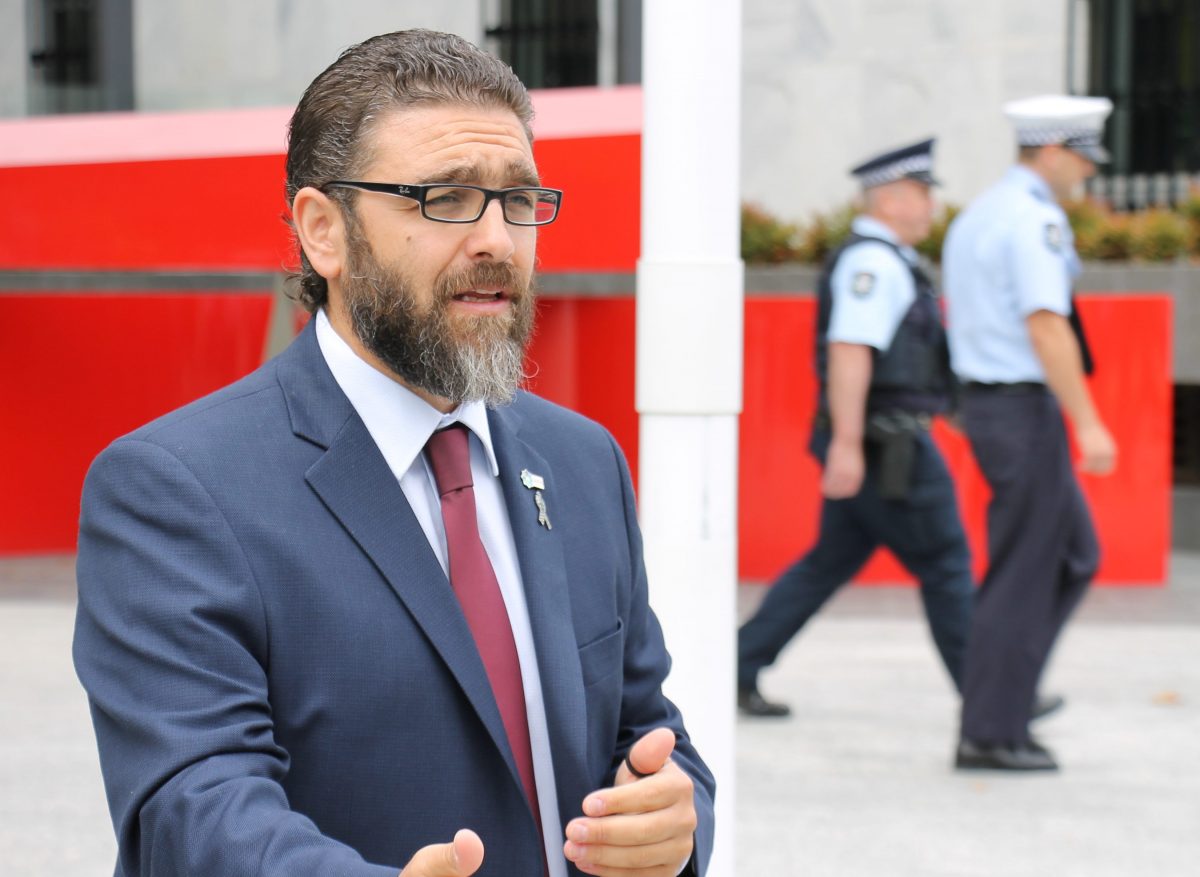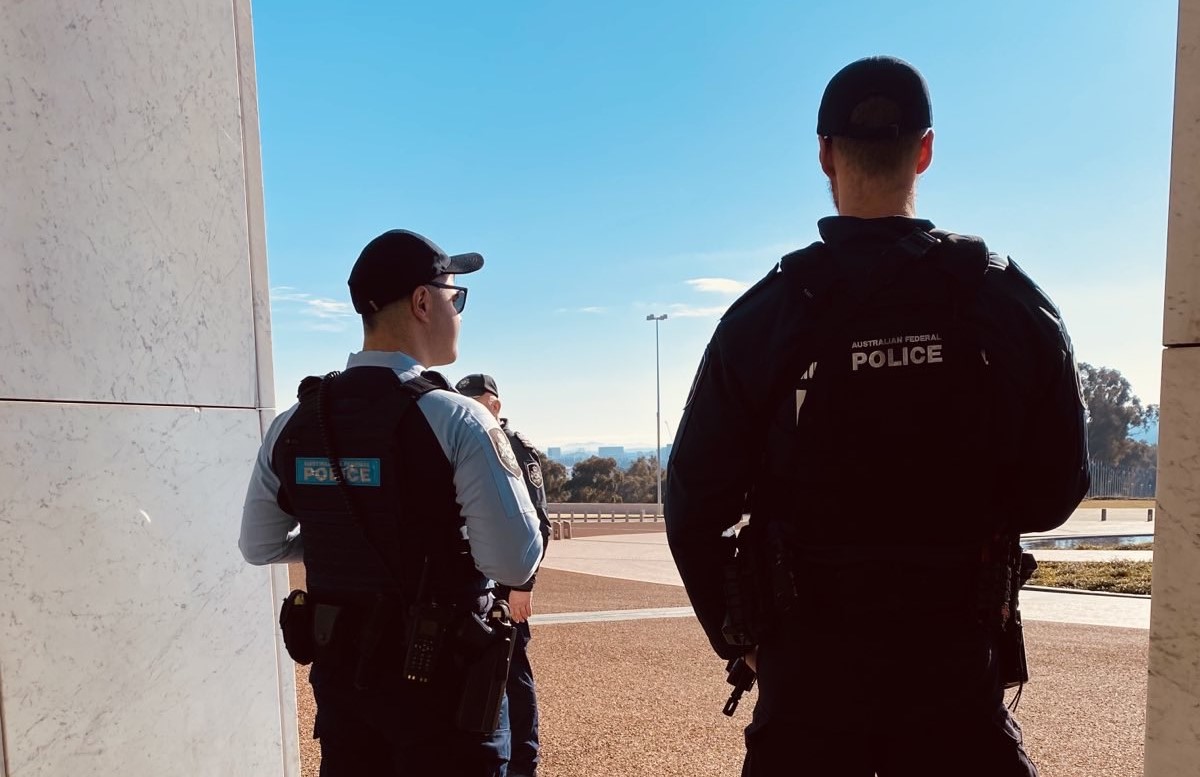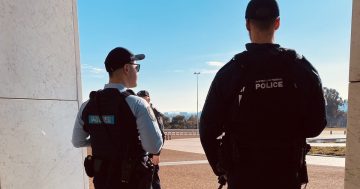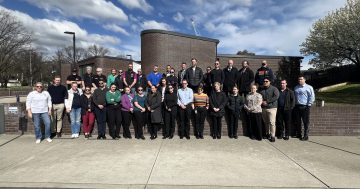
“While we didn’t achieve as much as we originally wanted, it’s been the first time in a long time where conditions haven’t gone backwards,” AFPA president Alex Caruana said. Photo: Albert McKnight.
After a year of difficult negotiations, the Australian Federal Police Association (AFPA) has announced that 52.05 per cent of its members voted in favour of an 11.2 per cent wage increase, including conditional benefits.
The AFP Enterprise Agreement (EA) 2024-2027 has come in line with that of the broader Australian Public Service (APS) offer, which the Community and Public Sector Union (CPSU) accepted last year.
For the past year, the union has been fighting “a protracted battle” with the Commonwealth Government, according to AFPA president Alex Caruana. Announcing the results, he thanked members for their dedication to their protected industrial action (PIA), which has resulted in a second offer “unquestionably superior to the first offer and far superior to the 2017-2021 EA”.
“We wouldn’t have seen a better offer in the second round if we hadn’t pressured the government via protected industrial action undertaken by members and overt and covert advocacy by the AFPA,” Mr Caruana said.
“I know that protected industrial action came with a personal cost to you, but without your support, we would not have been able to accomplish what we have.”
There will be a 4.5 per cent “frontloaded” pay rise in the first year, which is the best yearly pay rise in 16 years, according to Mr Caruana.
“Gaining an additional $40 million to the funding envelope that will pay your wage is no small feat,” he added. “Likewise, it’s no small achievement to add additional allowances such as ‘use of force’ and ‘unsociable hours’ to your pay cheque.
“While I acknowledge that not all AFPA members will get these allowances, all AFPA members will receive additional benefits in having access to the critical illness leave register, higher duties payable from day one, greater accrual of annual leave, and time off in lieu for executive and TSF members.”

The AFPA has suggested its future wage negotiations will be done separately from the CPSU because the officers “aren’t traditional public servants”. Photo: Facebook/AFPA.
The union president conceded that during bargaining, “we learned some valuable lessons”, including that the government’s non-APS bargaining framework “is crippling and doesn’t really allow for good-faith bargaining”.
Mr Caruana said it offered limited leeway and flexibility, which were often required to support a law enforcement workforce, and organisations such as the AFP were not “typical public service departments”.
“Bluntly, this policy is a set of handcuffs and no better than the APS-wide bargaining framework,” he said. “Our goal for the next three years will be to advocate for the AFP to be properly extracted from this policy and be allowed to bargain sensibly without constraint.”
Despite still awaiting the Fair Work Commission’s approval of this EA, the AFPA says it has already begun work on the 2027-2030 EA.
“We know the next three years will go quickly, and we aim to bring the AFP to the negotiation table at least 12 months before the 2024-2027 EA expires,” Mr Caruana said.
“In reality, that gives us 24 months to work out the positives and negatives of the EA, along with developing a campaign for what you and the membership wish to see changed.”
Mr Caruana told members that with the successful ”yes” vote, all PIA must end – so “if you have put up posters or displayed merchandise or slogans, please remove them”.
In addition to thanking the conveners and delegates cohort, and union staff, for their efforts throughout the campaign, Mr Caruana acknowledged “there will be unintended consequences with the 2024-2027 EA”.
“We also know that the AFP will interpret clauses differently to how they were originally envisaged,” he said.
“If you identify one of these problems, consequences or interpretations, please don’t hesitate to contact the APFA via afpa@afpa.org.au or (02) 6285 1677 so we can record the issue and work towards a resolution.”
Original Article published by James Day on PS News.





















